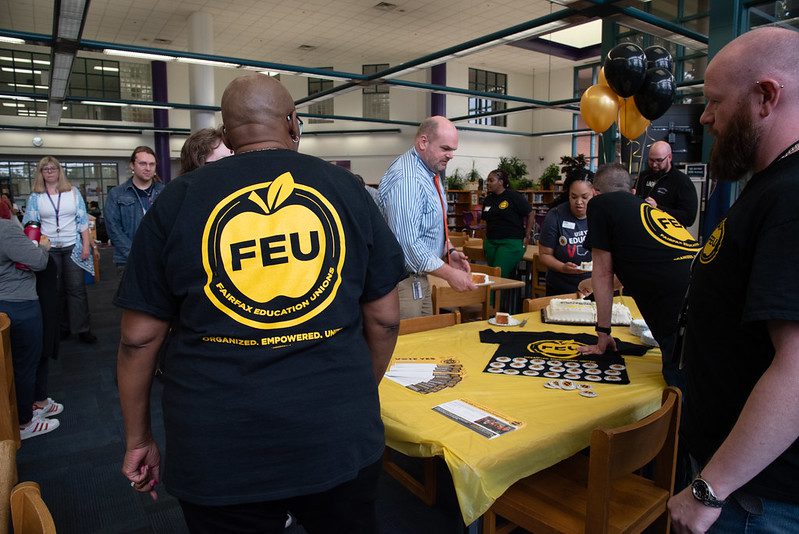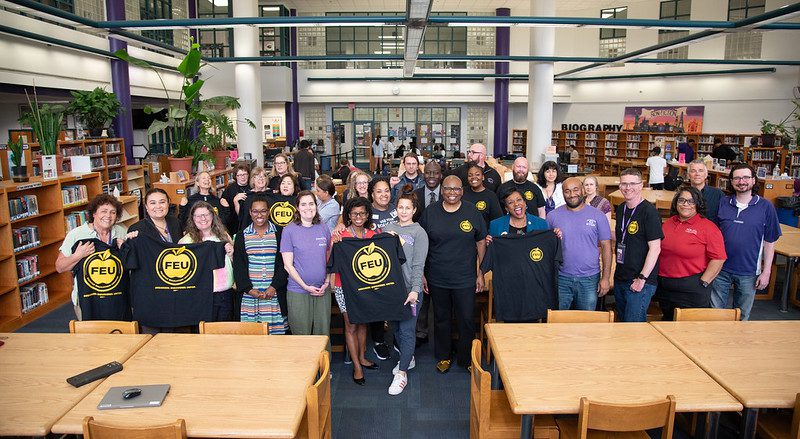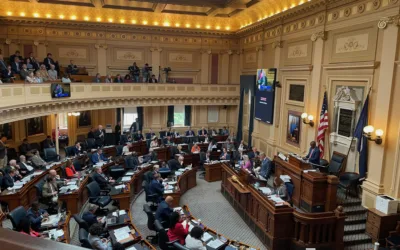
AP Photo/Steve Helber
As Virginia’s school year kicked off, districts were still struggling with issues such as teacher shortages. The commonwealth’s delayed-but-finally-approved budget agreement contains myriad potential fixes for K-12 school issues – some that could have an impact sooner rather than later.
The budget amendment agreement’s direct rebates for taxpayers ($200 for individuals, $400 for couples filing jointly) drew much of the attention after a deal between Republican and Democratic lawmakers was finally reached in late August and approved at the beginning of September, but Democrats continued to push for increased education resources as budget negotiations continued through the summer. In the end, the additional funding and resources being made available for Virginia’s public schools became a significant part of the state’s updated spending plan.
A state report released in July may have been a catalyst for the improved educational resources included in the agreement. The report found that Virginia’s schools receive less K-12 funding per student than the 50-state average and the regional average.
The budget establishes a working group to develop a long-range plan to remedy the issue, but it also includes more immediate measures to improve education quality in the commonwealth.
Public schools could fairly be described as the big winners in the budget agreement, which includes about $653 million in new spending on K-12 education.
That amount includes $418 million for one-time flexible payments to school divisions. The money is intended to address learning loss during the COVID-19 pandemic and implementation of the Virginia Literacy Act (which will require increased literacy instruction for students in kindergarten through fifth grade), with a minimum payment of $150,000 for the smallest school divisions in the state.
The budget update also includes $152 million to pay more of the state’s share for school support positions, which have been subject to a cap for over a decade, and would increase the funding ratio from 21 support positions per 1,000 students to 24 per 1,000 positions.
It also provides for a 2% pay raise for teachers and state employees, adjunct faculty, and teaching assistants at public colleges and universities. This raise comes on top of the 5% raise lawmakers approved in each year of the current two-year budget that ends June 30, 2024, ultimately resulting in a 7% pay increase for Virginia’s teachers by the end of the year.
While GOP control of the House of Delegates prevented the General Assembly from making meaningful progress on gun safety issues this year, the amended budget does provide for $20 million in grants to improve school security.
Additionally, the budget deal also brings back the state’s back-to-school sales tax holiday, although the delay in reaching an agreement bumped the holiday from its usual weekend in August to the third weekend in October for 2023.
Virginia’s higher education system also benefited from the budget agreement. The state’s public colleges and universities will receive an additional $190 million this year, with $75 million specifically earmarked to “support the growing need for student support services; address increased costs resulting from inflation; refine or create programs that meet current and future workforce needs; and minimize student costs.”
Another $62.5 million will go toward need-based undergraduate financial aid, and almost $5.8 million is being directed toward increased compensation for faculty at nursing schools to help alleviate nursing shortages.

Gwen Walz talks importance of education in Virginia in first presidential campaign event
The First Lady of Minnesota rallied a room full of educators and school personnel with Midwestern charm and chants of, “We’re not going back!” In...

Statewide cellphone ban in Virginia classrooms: what parents need to know
Following Governor Youngkin's executive order, Virginia schools will enforce a classroom cellphone ban starting next year. Here's what parents...

VIDEO: Virginia Democratic lawmakers announce deal for military education benefits program
Virginia military families were angered by eligibility restrictions for the Virginia Military Survivors & Dependents Education Program last month....

Fairfax educators overwhelmingly vote for, secure union representation
With an overwhelming vote of nearly 97% of instructional staff and more than 80% of operational staff voting yes, Fairfax Education Unions (FEU)...

Fairfax educators rally for historic collective bargaining effort to improve teaching conditions, student learning
The Fairfax Education Association and the Fairfax County Federation of Teachers have banded together to ensure that educators and school support...

Op-Ed: The Question of School (E)Quality: Virginia Needs to do Better for English Learner Students.
On April 23rd, the Virginia Board of Education concluded the second round of stakeholder feedback sessions for their new school performance and...





